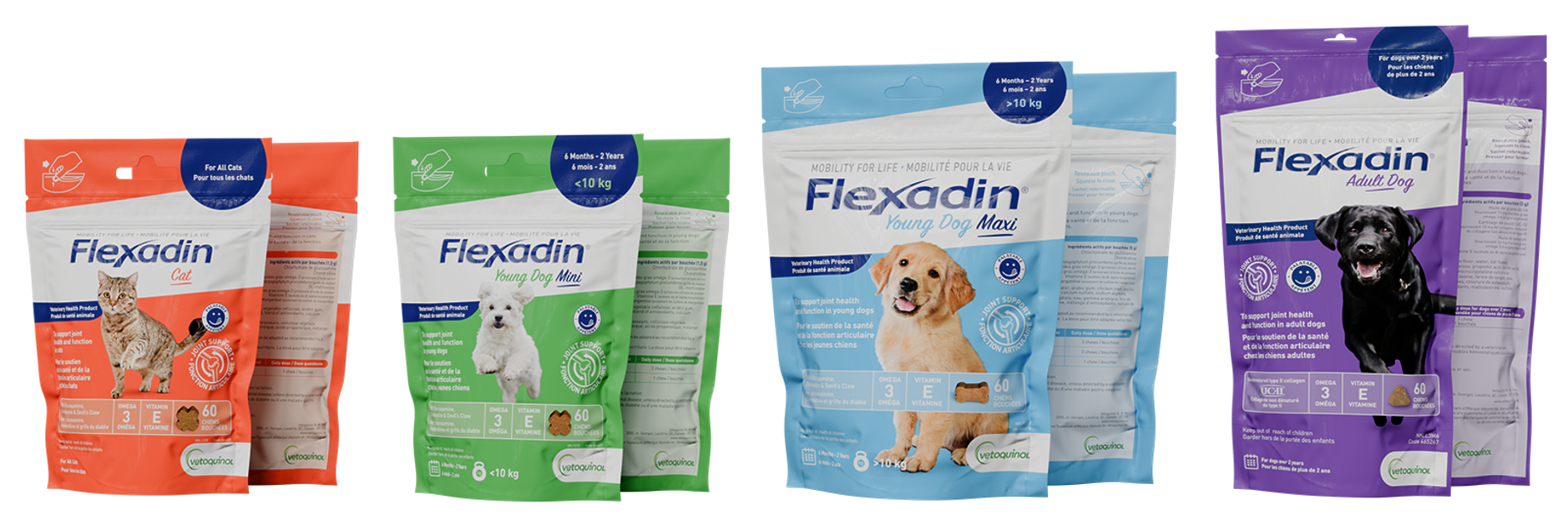Forget Montréal, Québec and other major cities of the province to produce veterinary products for large animals. In Québec, the heart of the production is in Princeville, Vetoquinol’s Québec plant. An overview of a well-kept secret.
Québec dairy, cattle and pig producers have probably all used a Vetoquinol product without knowing that it came from its large plant in Princeville, in the Regional Municipal County (MRC) de l’Érable, in the centre of Québec.
There, the company manufactures nearly 80 different products, all dedicated to animal welfare and reproduction. In addition to preparing hormone formulations and antibiotics—including penicillin—dietary supplements are also assembled among other formulas in liquid or solid form.
It is rare for high-tech pharmaceutical companies to locate far from the Québec metropolis. Vetoquinol is thus an exception that deserves to be highlighted, especially since it represents a unique case in the province. According to him, this proximity to local producers provides them with front-line service. "It is certain that if the market gets excited for a product and there is a shortage, we will react quickly to prevent our producers from being affected," says Mr. Bernard.
"BUYING VETOQUINOL IS BUYING QUÉBEC."*
– ÉRIC BERNARD, INDUSTRIAL SITE DIRECTOR—VETOQUINOL’S PRINCEVILLE PLANT
 The Vetoquinol plant in Québec also contributes to the development and maintenance in Québec of cutting-edge expertise in manufacturing and quality control of veterinary products. A specialty that is developed over years, emphasizes the Industrial Site Director.
The Vetoquinol plant in Québec also contributes to the development and maintenance in Québec of cutting-edge expertise in manufacturing and quality control of veterinary products. A specialty that is developed over years, emphasizes the Industrial Site Director.
31 YEARS OF QUÉBEC PRESENCE
Founded in 1933 in Lure in northeastern France, Vetoquinol set foot in North America in 1999 with the acquisition of the Princeville plant, whose facilities were already dedicated to the manufacturing of veterinary products for large animals, mainly cattle and pigs.
Since then, Vetoquinol has kept its foot firmly on the accelerator to support the growth of its Québec plant’s activities. Over the years, new buildings have been added to the plant, allowing it to increase its production capacity, but also to expand its offer.
THE COMPANY MANUFACTURES NEARLY 80 DIFFERENT PRODUCTS, ALL DEDICATED TO ANIMAL WELFARE AND REPRODUCTION.
"And this growth is far from over," says Mr. Bernard. He joined the company in 2014 when it employed 75 workers. "Today, there are 115 of us here," says the director of the establishment proudly, "and we would like to have 125 or 130 employees already to maximize our production capacity."
In addition to its high value-added product manufacturing facilities where it produces a follicle-stimulating hormone (FSH) concentrate used in animal reproduction, the Vetoquinol plant also has specialized equipment and personnel dedicated to quality control. About 35 members of its team ensure that antibiotics, hormones and other formulations from its production lines meet the highest standards of quality and safety. "With this division, we manage to do 98% of the tests internally," says Mr. Bernard.
The Princeville industrial site also meets Health Canada’s Good Manufacturing Practices (GMP) standards as well as U.S. Food & Drug Administration (FDA) standards, allowing it to sell its products anywhere in North America, in addition to distributing them elsewhere in the world.
SUPPORT FOR LOCAL VETERINARIANS
Among its Québec initiatives, Vetoquinol offers a continuing education program for veterinarians that is recognized and credited by their professional association.
 Known as the "ARC program," for "Applied Research for Cattle," this specialized program in bovine health allows Québec and Canadian veterinarians to stay abreast of new knowledge and developments in their sector through lectures given by leading figures in the field, and this, independently of what Vetoquinol could offer them.
Known as the "ARC program," for "Applied Research for Cattle," this specialized program in bovine health allows Québec and Canadian veterinarians to stay abreast of new knowledge and developments in their sector through lectures given by leading figures in the field, and this, independently of what Vetoquinol could offer them.
"It is the veterinarians themselves who propose, through their responses to our surveys, the topics to address," explains Melissa Jones, Product Manager, Production Animals at Vetoquinol. Responsible for disseminating the content surrounding the ARC program, Ms. Jones says the lectures, which were given entirely this year in the form of webinars, will be offered face-to-face again once the pandemic is over. At least, partially.
"We plan to adopt a hybrid approach to meet everyone’s needs," she says. "Our veterinary customers are always looking for continuing education that stands out and that’s what we strive to offer with the ARC program."
A FOOTPRINT IN SEVERAL COUNTRIES
In addition to its Québec and Canadian operations, Vetoquinol is present in 23 other countries, from Brazil to New Zealand, the United States, Germany and the United Kingdom.
The company develops and markets veterinary drugs and non-drug products for large farm animals, such as cattle and pigs, but also for pets such as cats and dogs.
 The company manufactures nearly 80 different products, all dedicated to animal welfare and reproduction. As of December 31, 2020, Vetoquinol had more than 2,400 employees worldwide.
The company manufactures nearly 80 different products, all dedicated to animal welfare and reproduction. As of December 31, 2020, Vetoquinol had more than 2,400 employees worldwide.
Antibiotics, hormones and other formulations from Vetoquinol’s production lines meet the highest standards of quality and safety.
VETOQUINOL: EMPLOYEES AT THE HEART OF DECISIONS
Suggestion boxes, a continuous improvement committee, short-interval meetings, etc.: for just over three years, Vetoquinol employees in Canada have been involved in improving the way things are done in the company. An approach that makes the whole team happy.
In a talent-snatched sector such as veterinary manufacturing, it is no surprise that employers do everything possible to take great care of their employees.
This is the case at Vetoquinol in Canada. Both at its Princeville plant and at its commercial office in Lavaltrie, the company has implemented a series of measures to ensure that its staff are happy and participate in process improvement.
"In other words, we are giving them the means to improve their work environment," summarizes Éric Bernard, Industrial Site Director of Vetoquinol’s Princeville plant.
"And it works great!" he adds.
SERIES OF INITIATIVES
Among the initiatives put in place is a suggestion box that allows the most timid to put forward their ideas in order to improve the quality of life at work or to increase productivity, for example.
A committee dedicated to improving working life has also been set up. This group of employees, called The Catalysts, proposed to redevelop the outdoor terrace of the Princeville plant. "It’s very difficult to please everyone, but we rarely say no to a request," says Mr. Bernard.
"Thanks to these new methods, our employees feel much more involved and responsible for their work,” says Éric Bernard. “We also feel that they are grateful that the company trusts them and listens to them." – Éric Bernard, Industrial Site Director, Vetoquinol Princeville
In terms of work organization, Vetoquinol also works to empower its teams on the floor by giving them a share of decision-making power. "This is a fundamental change that serves everyone," says the Princeville plant’s Industrial Site Director. According to him, 75 to 80% of problems are now solved within teams without going back to the top of the pyramid.
Vetoquinol has also led its teams to adopt "Short Interval Meetings," or SIM, as a working tool. These are meetings that allow each supervisor to take the pulse of their team members and review each other’s priorities as well as establishing the objectives to be achieved.
VALUES THAT SHINE INTO THE COMMUNITY
Other initiatives aim to promote Vetoquinol’s core values to its community. Employees have, for example, formed the "Vert l’Action" committee, which has been organizing a shoreline clean-up activity in Lavaltrie since 2014 on Earth Day. Others are also involved with disadvantaged people of all ages and backgrounds, by contributing through donations to organizations that support children in precarious situations, homeless people, drug addicts and people with intellectual disabilities.
Since 2006, Vetoquinol employees have also made a point of raising funds for the United Way, an initiative to which their employer contributes. "When not in a pandemic context, employees donate on themed days in the form of games and draws, and the employer doubles that amount," says Melissa Jones.
WORK AND FAMILY LIFE BALANCE
Whether working on the road or within the facility, each employee can take advantage of flexible working hours to allow them to balance work and other personal occupations. The members of the production team cannot take advantage of this flexibility, but they have the privilege of working four days a week. With the COVID-19 pandemic, teleworking has also been introduced and should continue, at least in part. "We are working on a hybrid approach," says Melissa Jones.
 As at the Princeville plant, the Lavaltrie team is actively involved in improving working life at Vetoquinol through an initiative that takes the form of a group called The Transformers.
As at the Princeville plant, the Lavaltrie team is actively involved in improving working life at Vetoquinol through an initiative that takes the form of a group called The Transformers.
"The goal is to invert the hierarchical pyramid and empower employees at all levels," says Ms. Jones, herself involved in the initiative. "We want everyone to feel good about their jobs," she adds, noting that a happy employee will be more engaged in his work and will in turn make customers happy.
Vetoquinol staff members are also encouraged to develop their knowledge and skills. To do this, the company provides them with access to continuing education via the LinkedIn Learning tool in addition to organizing "talk days" where knowledge is shared among team members. All this is crowned by "health days" where healthy lifestyles are promoted.
Together, the employees aim to accomplish even more—this is the motto of the Vetoquinol Canadian team. Employees live the values TRUST, DARE and COLLABORATE in every daily gesture.
AT VETOQUINOL, 75 TO 80% OF PROBLEMS ARE NOW SOLVED WITHIN THE TEAMS WITHOUT GOING BACK TO THE TOP OF THE PYRAMID.
* 80 of Vetoquinol products are mixed at the Princeville plant from foreign ingredients.
Latest news

Vetoquinol Canada Announces the Launch of Flexadin® Essential, an Evolution of the Flexadin® Line
October 2024

32nd World Biannual Conference on Buiatrics: Concrete Advances Shaping the Future of Cattle Farming
August 2024

Clip 6 – Sustainable development, an integral part of Vetoquinol
January 2024
